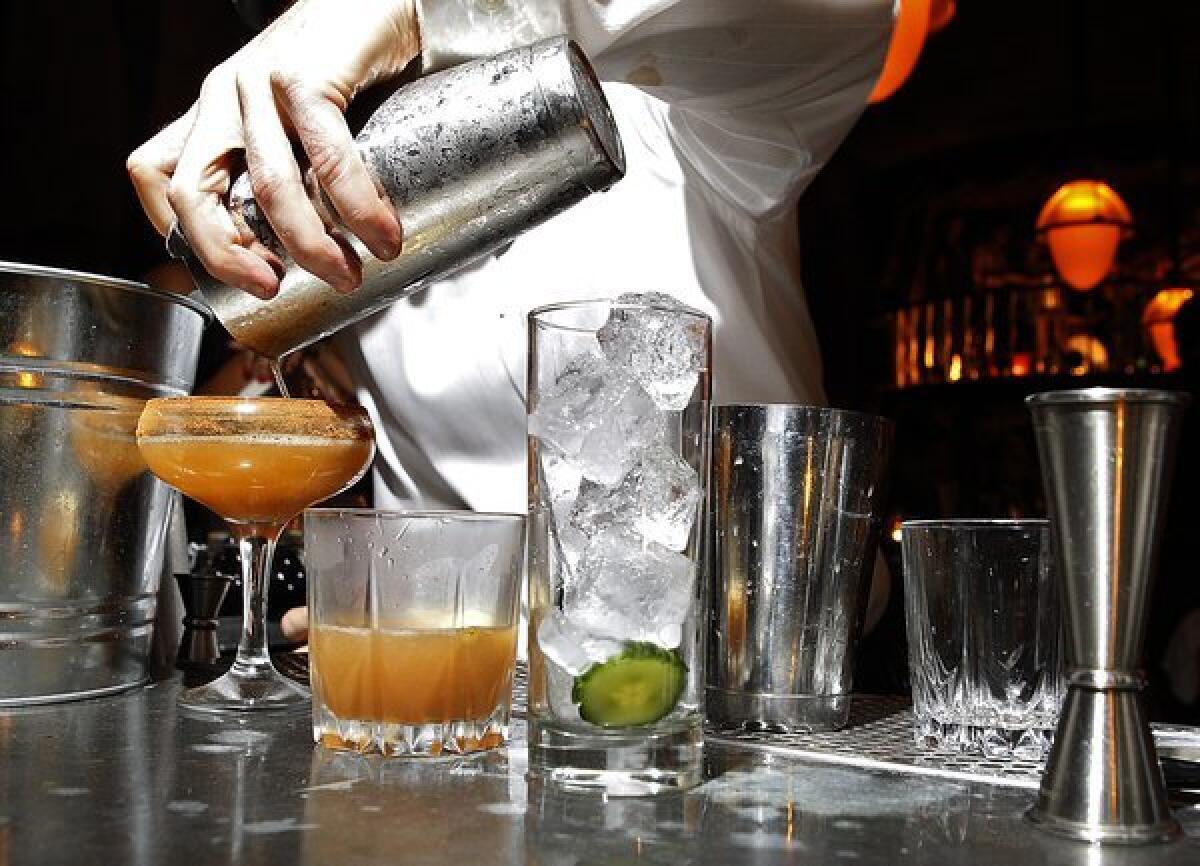Is your designated driver drunk?

Should designated drivers abstain from booze? If you said, yes, you might be shocked to know that 35% of so-called DDs drank on duty, while a portion of them were legally drunk when they hit the road, according to a new study.
That finding, published in the Journal of Studies on Alcohol and Drugs, comes amid new calls for warning labels on alcohol.
In an editorial in the Canadian Medical Assn. Journal, Dr. Ken Flegel, a professor of medicine at McGill University, said young women needed to be warned of the gender specific risks of alcohol use, much the way consumers are warned of tobaccoâs damaging health effects.
In order to determine the drinking habits of designated drivers, researchers at the University of Florida surveyed more than 1,000 bar patrons in Gainesville, Fla., over a period of Friday nights, and had them blow into hand-held breathalyzers.
Of the 165 revelers who identified themselves as designated drivers, 17% had blood alcohol levels between .02 and .049, while another 18% blew a .05 or above. Of that second group, the mean average of blood alcohol content was .09 -- just above the legal limit.
âWe were kind of surprised,â said Adam Barry, lead author and associate professor of health education and behavior at the University of Florida. âWe went in hopeful that people knew they shouldnât be drinking if they were designated drivers.â
There is little consensus among researchers or the general public on whether designated drivers should abstain from consuming alcohol entirely, or simply remain below the .08% legal limit of intoxication.
While some research suggests that most people begin to see a decline in driving ability with a blood alcohol content of just .02% -- and significant impairment at .05% percent -- Barry and colleagues argue that designated drivers face far more challenges than regular drivers.
âConsider the distractions you have in a car that doesnât have three or four drunks in it,â Barry said. âThereâs music, thereâs the cellphone. Now, if you have intoxicated people roughhousing or being boisterous while driving, youâre going to have a constellation of factors competing for the driverâs attention.â
The vast majority of the survey sample, or 73%, where white males, while the median age of respondents was 28 years. None were told what their breath tests results were, for fear that they might continue drinking if they perceived the results as being low, authors wrote.
The study results suggest that many groups of drinkers are not naming a designated driver before they start drinking, and are simply appointing whomever appears least intoxicated at the end of the night.
âAlcohol is insidious,â Barry said. âBy the time you begin to feel the effects, youâre already drunk. The only responsible thing to do if youâre a designated driver is just not drink.â
Return to Science Now blog.
Follow me on Twitter @montemorin





